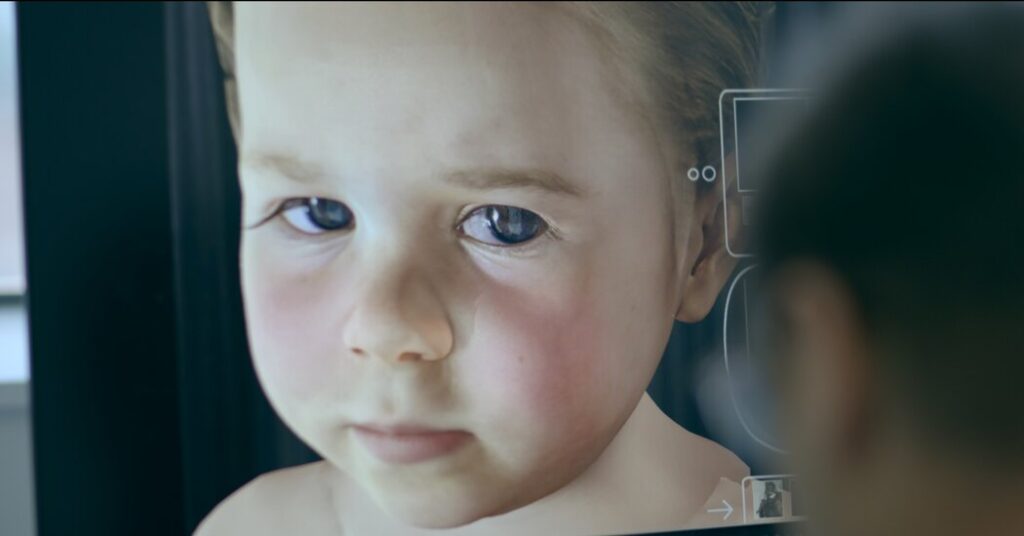Within the Nineteen Sixties, the science-fiction author Arthur C. Clarke coined a helpful adage: “Any sufficiently superior know-how is indistinguishable from magic.” He was proper, as demonstrated by the virtually mystical reverence with which individuals have a tendency to explain synthetic intelligence instruments like ChatGPT. We all know it’s simply software program. We even sort of perceive how this system works. However as a result of it’s so superior that it feels uncanny — prefer it is aware of me — we deal with it with veneration and just a little worry, as if it’s a god and never a creation.
And, more and more, we flip to A.I. to reply the types of questions and fulfill the sorts of longings that faith as soon as solved. That’s the matter of the brand new documentary “Eternal You” (out there on demand and directed by Hans Block and Moritz Riesewieck).
Because the title suggests, “Everlasting You” is generally involved with a really specific use of A.I.: giving customers the phantasm of speaking to their lifeless family members. Massive language fashions skilled on the deceased’s speech patterns, chat logs and extra could be made to mimic that particular person’s approach of speaking so properly that it feels to the grief-stricken as in the event that they’re crossing the border between life and dying. These instruments could be comforting, however they’re additionally doubtlessly massive enterprise. One of many movie’s topics calls it “dying capitalism.”
I first noticed “Everlasting You” a yr in the past throughout its pageant run, and after I rewatched it lately I used to be startled to appreciate how a lot has modified in these 12 brief months. We’ve discovered about — or simply wholesale adopted — A.I. friends and A.I. partners. Our social media feeds at the moment are flooded with “folks” who usually are not folks in any respect, and Meta announced plans to create them systematically on their very own platforms. The concept that there was some huge cash to be made in letting us chat with an imitation of a lifeless particular person felt just a little fringe to me a yr in the past, however I’m fairly positive now that I used to be improper.
The themes of “Everlasting You” vary from the bereaved to the skeptical to the software program creators. Some folks just like the expertise; others discover it deeply disturbing. However what’s extra attention-grabbing are the questions animating the documentary: not whether or not it’s moral to attempt to discuss to the lifeless, however whether or not it’s moral for a software program agency to promote that “potential.” As Sherry Turkle, the eminent sociologist, notes within the movie, A.I. is a “good gadget that is aware of trick you into considering there’s a there there.”
“Everlasting You” isn’t actually about overcoming dying, because it seems. In a wide-ranging and considerably rambling method, it’s about people’ desperation to search out that means in life wherever they will, and the way corporations are speeding to fill that hole and encourage virtually non secular devotion, even within the professionals making the instruments. Nevertheless it additionally appears like a warning: That’s not the one you love on the opposite finish in any respect — and it’s not magic both.

